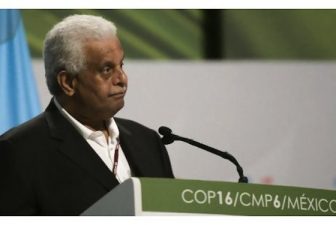 An update on the latest climate negotiations in Bonn as well as Middle Eastern countries which made the headlines during the talks
An update on the latest climate negotiations in Bonn as well as Middle Eastern countries which made the headlines during the talks
Believe it or not, the latest climate negotiations at Bonn – which discussed the future of the Kyoto Protocol which ends in 2012 as well financing adaptation – have come and gone without making much of a stir. The lack of media attention is surprising, even if we take into consideration the total failure of Copenhagen and a growing realisation that climate summits are not where we are going to find solutions for climate change.
What isn’t so surprising is apparent failure of the talks to make any real progress towards setting legally binding targets to cut emissions or finance the developing countries so that they can move towards sustainability. It seems that after two weeks of negotiations, which ended on Friday 17th June, there is very little to show for it.
Saudi Arabia, Qatar, Kuwait and Oman
Whilst Middle East and North Africa nations were fairly absent from the talks, some countries did manage to make an impact. Unsurprisingly, Saudi Arabia made the headlines (again) for their attempts to delay the progress of the talks by insisting that agreement wasn’t necessary for another 18 months.
They were also keen to revive their demand that they should receive compensation for the loss of oil revenue in a post-oil future. Kuwait, Oman and Qatar were similarly criticized for holding up talks and were awarded the ‘Fossil of the Day’ by the Climate Action Network, which is an alliance of various green NGO’s.
Saving Kyoto Protocol
The rift between developing and developed countries seemed to grow as the G77 group (which consists of developing countries) pointed out that the money promised to them 18 months ago to allow them to adjust to climate change had not been delivered. They also demanded that developed nations commit to a 50 percent cut in emission below 1990 levels by 2020 under an extended Kyoto Protocol.
Egypt, speaking for the Arab Group, called the Kyoto Protocol the most important legal instrument addressing climate change and urged Annex I countries (developed nations) to respect their legal commitment to a second commitment period. Apart from these brief mentions, the Middle East didn’t really get much of say in the talks.
The focus seemed to be more on the EU nations as they need to be working towards a new legally binding agreement to cut their emissions as well as providing adaptation funds for developing nations who will bear the burnt of climate-change induced disasters.
::Image via Adopt A Negotiator/flickr



